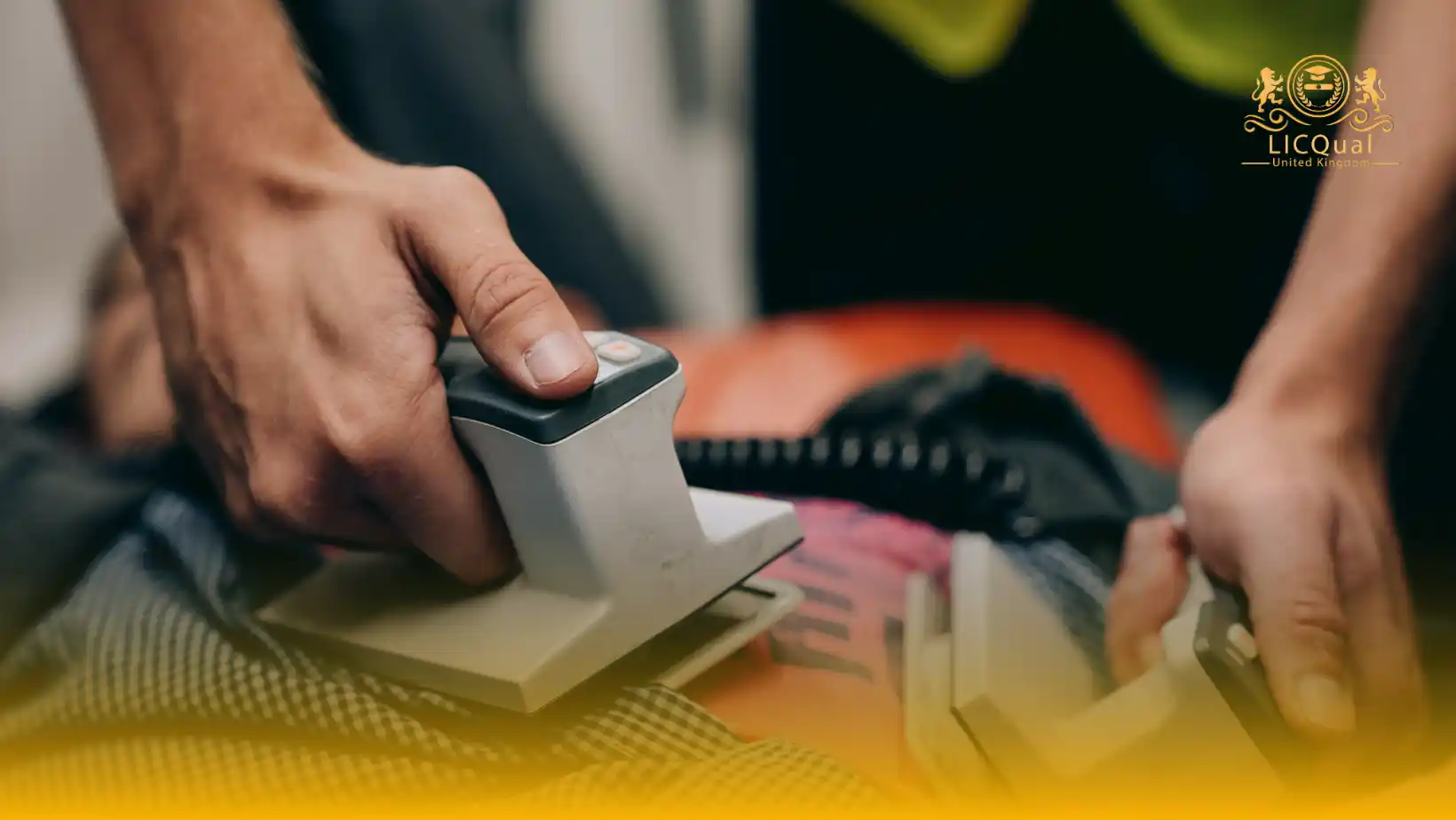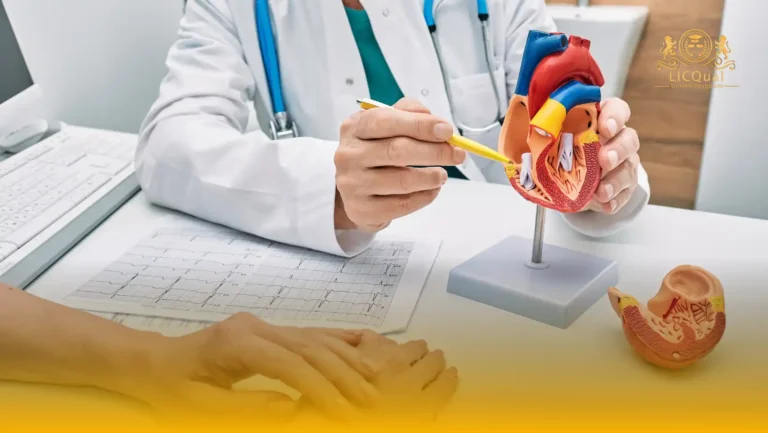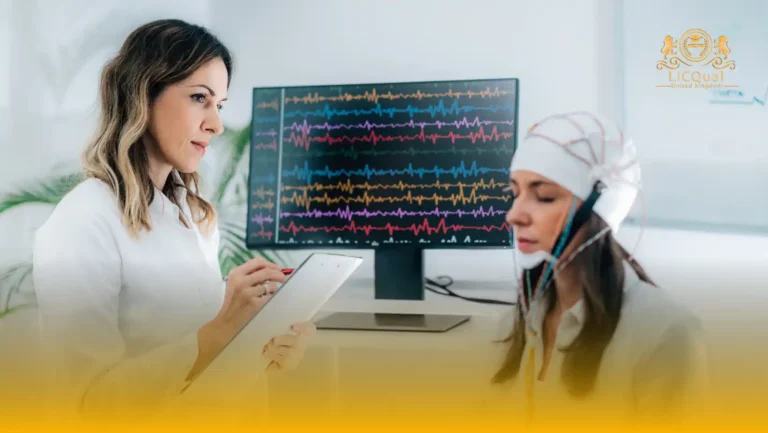The LICQual Level 4 Award in AED Trainer Assessor is a prestigious professional qualification designed for individuals who aspire to train and assess others in the safe and effective use of Automated External Defibrillators (AEDs). This course equips learners with advanced knowledge, instructional techniques, and assessment skills to ensure trainees are competent and confident in responding to sudden cardiac arrest emergencies.
In today’s high-risk environments, immediate and effective AED use can be the difference between life and death. This qualification blends life-saving technical knowledge with educational expertise, enabling graduates to not only operate AEDs proficiently but also deliver engaging, accurate, and compliant training sessions to diverse audiences.
The programme follows international first aid and resuscitation guidelines, ensuring learners develop a strong understanding of AED functionality, maintenance, and integration into emergency response systems. Additionally, it focuses on adult learning principles, performance assessment methods, and quality assurance practices, preparing participants to meet regulatory and organisational training standards.
Whether you are a health and safety officer, paramedic, corporate trainer, or emergency services professional, this course offers a pathway to enhance your career and make a real impact in workplace safety and public health. Upon successful completion, learners will be fully equipped to deliver certified AED training programmes and assess learner competence with accuracy, fairness, and professionalism.
With the LICQual Level 4 Award in AED Trainer Assessor, you not only learn how to save lives but also gain the skills to teach others to do the same — multiplying the impact of your knowledge and expertise.
Course Overview
Qualification Title
LICQual Level 4 Award in AED Trainer Assessor
Total Units
6
Total Credits
12
GLH
36
Qualification #
LICQ2200610
Qualification Specification
To enroll in the LICQual Level 4 Award in AED Trainer Assessor, applicants must meet the following criteria:
|
Qualification# |
Unit Title |
Credits |
GLH |
|---|---|---|---|
|
LICQ2200610-1 |
Principles of Automated External Defibrillation (AED) |
2 |
6 |
|
LICQ2200610-2 |
AED Operation and Maintenance |
2 |
6 |
|
LICQ2200610-3 |
Advanced CPR and AED Integration |
2 |
6 |
|
LICQ2200610-4 |
Training Delivery Techniques for AED Instruction |
2 |
6 |
|
LICQ2200610-5 |
Assessment Strategies for AED Competence |
2 |
6 |
|
LICQ2200610-6 |
Quality Assurance in AED Training and Assessment |
2 |
6 |
By the end of this course, learners will be able to:
1. Principles of Automated External Defibrillation (AED)
Learners will be able to:
- Explain the physiological principles behind defibrillation and its role in cardiac arrest management.
- Identify different types of AED devices and their operational principles.
- Recognise common cardiac arrest rhythms and understand when AED use is appropriate.
- Describe safety considerations and precautions when using an AED.
- Outline legal, ethical, and regulatory frameworks governing AED use.
2. AED Operation and Maintenance
Learners will be able to:
- Demonstrate correct procedures for powering, operating, and positioning AED pads on a casualty.
- Interpret AED voice and visual prompts to deliver safe and effective shocks.
- Identify and troubleshoot common AED malfunctions or operational issues.
- Carry out routine AED maintenance checks in compliance with manufacturer guidelines.
- Maintain accurate records of AED use, servicing, and readiness checks.
3. Advanced CPR and AED Integration
Learners will be able to:
- Perform high-quality CPR following internationally recognised guidelines (e.g., ILCOR, AHA, ERC).
- Integrate AED use seamlessly within the CPR cycle to minimise interruptions.
- Apply advanced airway and ventilation techniques alongside AED use, where applicable.
- Coordinate AED and CPR in team-based resuscitation scenarios.
- Evaluate performance and identify areas for improvement during simulated cardiac arrest events.
4. Training Delivery Techniques for AED Instruction
Learners will be able to:
- Plan and deliver structured AED training sessions suitable for varied learner groups.
- Use visual aids, demonstrations, and practical simulations to enhance learning.
- Adapt teaching methods to meet the needs of diverse learners and learning styles.
- Ensure training content meets recognised standards and certification requirements.
- Evaluate learner engagement and adjust delivery strategies accordingly.
5. Assessment Strategies for AED Competence
Learners will be able to:
- Design valid and reliable assessment tools to evaluate AED knowledge and skills.
- Conduct practical assessments in realistic scenarios to measure learner competence.
- Apply fair and consistent assessment practices in line with awarding body standards.
- Provide constructive feedback to support learner improvement.
- Maintain assessment records in compliance with quality assurance policies.
6. Quality Assurance in AED Training and Assessment
Learners will be able to:
- Explain the importance of quality assurance in AED training and assessment.
- Implement internal verification processes to ensure training consistency.
- Identify areas for improvement through monitoring, feedback, and learner evaluations.
- Maintain compliance with legal, organisational, and awarding body requirements.
- Develop and follow a continuous improvement plan for AED training programmes.
The LICQual Level 4 Award in AED Trainer Assessor is designed for individuals who want to advance their careers in emergency response, health and safety training, and workplace first aid education. This qualification is ideal for professionals who wish to teach others how to use Automated External Defibrillators (AEDs) effectively and assess learners’ performance with confidence and accuracy. Whether you are a healthcare practitioner, first aid instructor, or safety trainer, this course helps you become a recognized authority in AED training and assessment.
1. First Aid and Emergency Response Professionals
- Perfect for certified first aiders seeking to upgrade their teaching and assessment skills.
- Enhances professional credibility in emergency care and CPR training environments.
- Equips responders to teach AED handling in real-life cardiac emergencies.
- Builds confidence in delivering structured AED learning sessions.
- Opens pathways for roles in medical training organizations or rescue services.
2. Health and Safety Trainers
- Ideal for those responsible for employee safety and compliance programs.
- Provides knowledge to integrate AED training into workplace safety policies.
- Helps trainers meet legal standards for emergency preparedness.
- Supports the design of effective AED drills and competency evaluations.
- Strengthens trainer credibility in occupational health and safety fields.
3. Medical and Healthcare Practitioners
- Beneficial for nurses, paramedics, and healthcare professionals expanding into training roles.
- Offers insight into best practices for AED instruction within clinical settings.
- Enhances patient safety by promoting correct AED application and response time.
- Develops the ability to assess peers or trainees in AED use.
- Builds instructional leadership in hospital or community training programs.
4. Corporate and Industrial Safety Officers
- Suitable for safety officers managing large-scale emergency response plans.
- Enables delivery of AED training to employees in high-risk environments.
- Improves organizational readiness for sudden cardiac incidents.
- Aligns AED training programs with corporate compliance standards.
- Adds recognized trainer credentials to professional safety portfolios.
5. Educational and Vocational Trainers
- Designed for instructors delivering health, safety, or emergency care modules.
- Adds specialization in AED training and assessment to existing teaching skills.
- Equips educators with structured lesson planning for AED training sessions.
- Promotes learner engagement through practical, scenario-based training.
- Enhances teaching portfolios for vocational and community training centers.
6. Community Rescuers and Volunteers
- Perfect for individuals passionate about lifesaving and public safety education.
- Builds the ability to organize AED workshops in community centers or NGOs.
- Encourages leadership in local emergency response initiatives.
- Strengthens confidence in training others to act swiftly in cardiac emergencies.
- Creates certified trainers who can make a meaningful impact in society.
7. Training and Assessment Professionals
- Tailored for individuals experienced in delivering or evaluating vocational courses.
- Provides advanced assessment methodologies for practical AED training.
- Develops skills to maintain training records and ensure quality assurance.
- Encourages professional development in teaching and evaluating critical response skills.
- Establishes credibility as a qualified LICQual-certified AED Trainer Assessor.
The LICQual Level 4 Award in AED Trainer Assessor is more than a qualification—it’s a pathway to saving lives through knowledge, confidence, and professional instruction.
Assessment and Verification
All units within this qualification are subject to internal assessment by the approved centre and external verification by LICQual. The qualification follows a criterion-referenced assessment approach, ensuring that learners meet all specified learning outcomes.
To achieve a ‘Pass’ in any unit, learners must provide valid, sufficient, and authentic evidence demonstrating their attainment of all learning outcomes and compliance with the prescribed assessment criteria. The Assessor is responsible for evaluating the evidence and determining whether the learner has successfully met the required standards.
Assessors must maintain a clear and comprehensive audit trail, documenting the basis for their assessment decisions to ensure transparency, consistency, and compliance with quality assurance requirements.







